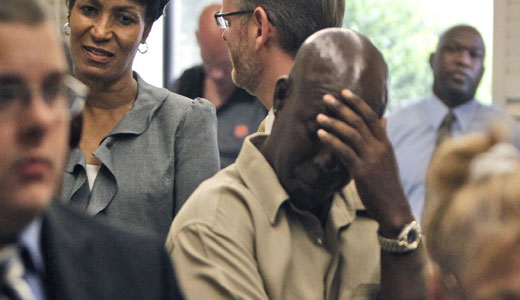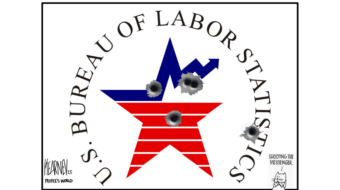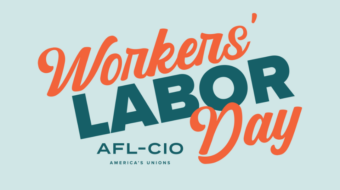
Big business has set up a new roadblock for the jobless: in a discriminatory practice that is becoming increasingly widespread, employers are only considering hiring those who are already working, reported the AFL-CIO. In other words, the unemployed need not apply.
This policy was not the type of change President Obama had in mind when he told the unemployed there was hope on the horizon.
As it stands now, said the report, for every one job open, there are 4.7 people who are jobless. Meanwhile, roughly 25 million Americans overall are either unemployed, underemployed, or have stopped looking for work altogether.
What’s worse is that, according to Color of Change, Black communities in particular are suffering, as about 15 percent of African Americans are without jobs.
The problem is aggravated by the fact that job websites like Monster.com and Career Builder fail to ban job listings that appear to treat the jobless with exorbitant prejudice.
However, the working class doesn’t intend to endure the discrimination without putting up a fight: Kelly Weidemer, an unemployed business analyst, launched a viral campaign on Change.org that calls on supporters to correct this issue, and has already recruited tens of thousands of supporters to the cause.
Weidemer said: “At the end of the day, it’s all about the money. It also helps [employers] reduce the number of applications they have to wade through.” Moreover, “they believe the unemployed are “bad apples” and are jobless for a reason,” she continued, highlighting yet another discriminatory thought process on their part.
And, Weidemer remarked, “It’s gonna affect the older people the most.”
According to BNET, there are various other reasons why employers are avoiding those who don’t have jobs – all of them unfair. These include, for example, the fact that, because years ago the unemployed were fewer in number, those jobless were considered by employers to be at fault for being so. This opinion, however, has not changed to accommodate the times, and so unemployed people get categorized under this stereotype.
Another concern among employers is the possibility of skill deterioration among those who have not worked in some time, and it is this fear that makes them more prone to hire, say, a nurse who is still working in the field, as opposed to one who has been out of work for three years.
What is important now is the responsibility of the working class to examine and handle this issue – to fight back and refuse to be discriminated against.
Weidemer’s advice? “A lot of people are afraid to speak out. People that have been out of work a year or longer have only a 9 percent chance of finding work. But if people speak up, we can put an end to this.”
For example, at real estate company 21st Century, you must be “employed or recently employed” to get a job there, according to Campaign for America’s Future.
Post-Recession, that’s not feasible for a lot of people.
So far, however, progress is slow: Monster not only refused to ban ads that discriminate against the jobless, but threatened to take legal action against Weidemer’s campaign for challenging them, according to a press release by Color of Change.
Speaking from personal experience, Weidemer elaborated, “It’s one thing to lose a job because of the economy. It’s another thing to be denied the right to pursue the American Dream.”
Photo: Job seekers gather at an Aug. 15 career fair in Plano, TX. About 15 percent of African Americans now face unemployment. (LM Otero/AP)










